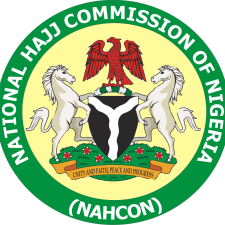
By Chimezie Godfrey
The Executive Director, Civil Society Legislative Advocacy Center (CISLAC) and Head of Transparency International TI, Nigeria, Auwal Rafsanjani says Nigeria loses $2.9 billion yearly from tax incentives to corporations.
He made the assertion in his remark at the Pan African Conference Combatting IFFs To Bridge Africa’s Widening Inequality Gap held on Tuesday in Abuja.
He expressed his profound gratitude to the Tax Justice Network Africa and other partners for the strategic collaboration towards scaling up domestic resource mobilization by curbing illicit financial flows to shift from a reliance on external financing and bridge Africa’s financing gap, in light of the economic impacts of the covid-19 pandemic.
Rafsanjani recalled that according to Oxfam’s latest Index report on the Commitment to Reducing Inequality in West Africa, the covid-19 pandemic has revealed and worsened the depth of inequality in West Africa.
Aso, he noted that the IMF and World Bank have all expressed concerns over the likely sharp increase in inequality and poverty arising from the pandemic, with estimates projecting that 42.1% of the sub-region will be pushed into extreme poverty. Worse yet, the World Bank further indicated that the poverty increase could take more than a decade to reverse, erasing all hopes of countries meeting their national development plan targets to reduce poverty and inequality by 2030.
He pointed out that on the other hand, the wealthiest people in the region fare differently, as the three wealthiest men in the region, who are all based in Nigeria, have seen their wealth expand from $16.8billion in March 2020 to $23.2 billion by July 2021, which is more than enough to fund a full vaccine programme for the entire West African population.
According to him, the report showed that Nigeria was the region’s worst performing country in tackling inequality going into the pandemic.
Rafsanjani also lamented the fact that Nigeria losses over $2.9billion yearly from tax incentives to corporation.
He said,”Nigeria’s health budget (as a percentage of its overall budget) is the third lowest in the world (3.6 percent) and 40 percent of its population does not have access to healthcare services.
“Nigeria loses $2.9 billion a year from tax incentives to corporations but in 2021 increased value-added taxes (VAT), which apply to everyday products like food and clothing and fall disproportionately on poor people, from 5 percent to 7.5 percent.
“Over the last 50 years, Africa is estimated to have lost in excess of $1 trillion in illicit financial flows (IFFs). This sum is roughly equivalent to all of the official development assistance (ODA) received by Africa during the same timeframe. Currently, Africa is estimated to be losing more than $50 billion annually in IFFs.
“But these estimates may well fall short of reality because accurate data do not exist for all African countries, and these estimates often exclude some forms of IFFs that by nature are secret and cannot be properly estimated, such as proceeds of bribery and trafficking of drugs, people and firearms.
“The amount lost annually by Africa through IFFs is therefore likely to exceed $50 billion by a significant amount. Although the figures on IFFs are heavily disputed, current analyses agree that IFFs exceed the amount of ODA provided to Africa. According to the Nigeria Extractive Industries Transparency Initiative (NEITI), Nigeria loses at least $15billion USD annually to Illicit Financial Flows.
“IFFs have been at the center of discussions in Africa due to their negative impact on development financing, sustainable development and growth. IFFs connected with corruption, crime and tax evasion are an issue of increasing concern that reduces government revenue for financing sustainable development.
“This concern is particularly acute in developing countries like Nigeria. In African countries, tax revenues account for only approximately 18% of GDP, while the average tax-to-GDP ratio is 34% in Organization for Economic Co-operation and Development (OECD) countries and the low capacity of some African tax administrations to enforce tax laws and tackle IFFs is one reason for this problem.”
The Anti- Corruption Crusader stressed that the Sub-Saharan Africa has one of the highest ratio of IFFs of any region in the world.
According to him, in recognition of IFFs as a predisposing factor to optimizing revenue mobilization for sustainable development financing, a number of interventions have been conceived and/or implemented.
“Today’s conference falls within the framework of one of such interventions under the theme: ‘Combatting IFFs to Bridge Africa’s Widening Inequality Gap’, on-going organizational action coordinated by CISLAC with support from the Tax Justice Network Africa, Stop the bleeding campaign, Diakonia, the Ministry of Foreign Affairs of Finland and the Tax Justice and Governance Platform towards positioning combatting IFFs as a strong post-Covid-19 strategy to addressing the growing inequality in Nigeria and on the continent .
“It is our hope that this engagement presents a veritable opportunity to track the status of the implementation of key reforms such as the High-Level Panel report to combat IFFs in Africa; Identify transformative actions and solutions for national and sub-national governments, parliamentarians, civil society organizations, the private sector and other policy players that are key in combating IFFs in Nigeria and across Africa; Create opportunities for growing partnerships and collaborations to combat IFFs between the different actors; and Showcase the emergence of innovative policies and tools that are effective in combating IFFs,” Rafsanjani stated.



